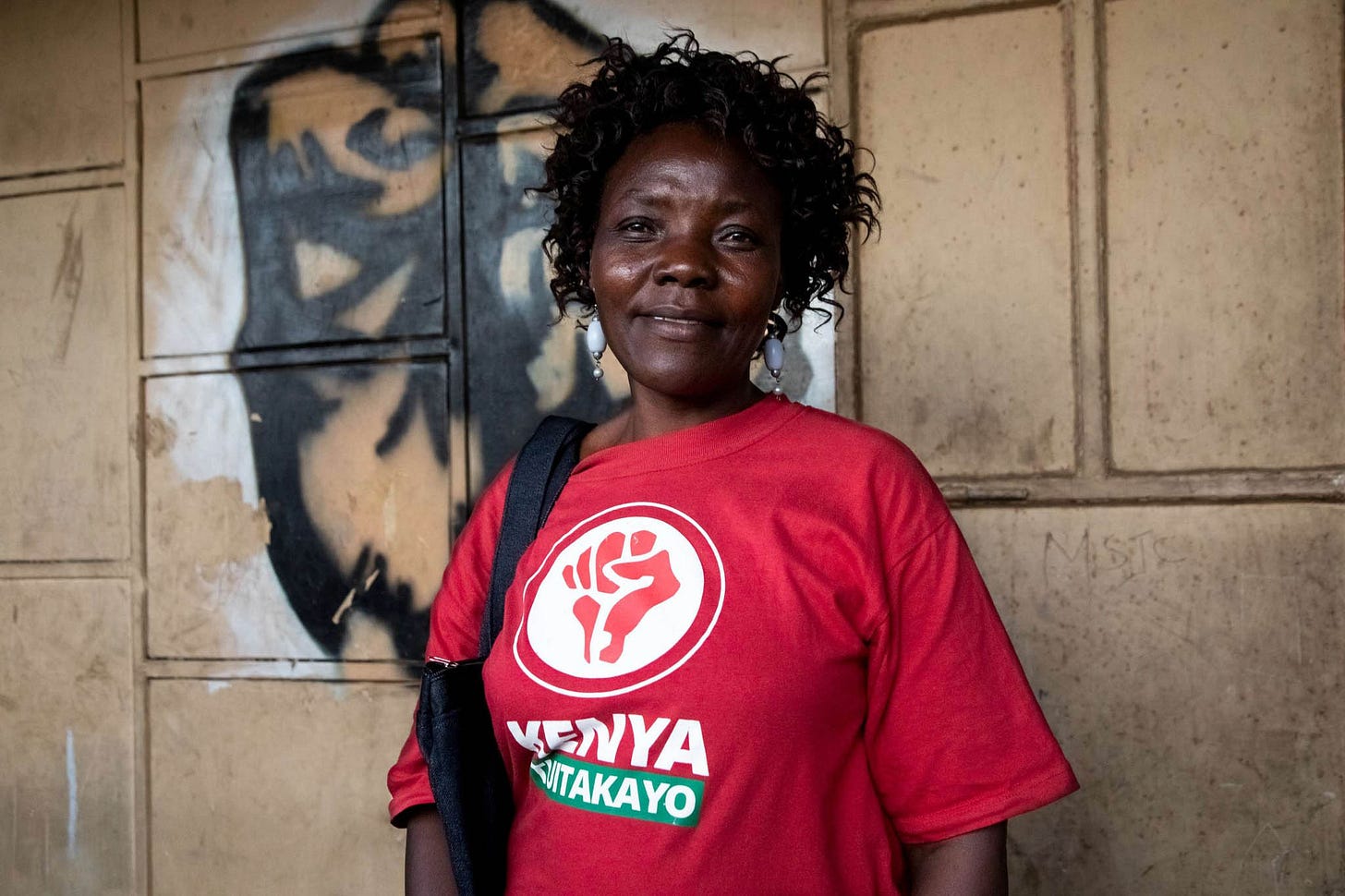Benna Buluma, 1966-2024
Mama Victor, as she was known by all, fought against a system that was determined to fail her.
Njeri Kimani

The first sign that something was wrong came at last week’s launch of the Missing Voices Annual Report. There was one conspicuous absence. Where was Benna Buluma? Then news broke that her house in Mathare had been swept away.
Flash floods in Kenya have devastated parts of Nairobi, Nakuru, Kajiado and River Tana counties. In the worst incident, in Maai Mahiu town in Nakuru, more than 70 people died when a dam burst and flooded a village. Across the country, heavy rains have burst rivers, dams and bridges, claiming at least 180 lives and displacing more than 190,000.
Buluma’s body was found amid the debris in Mathare, along with at least 30 others. They say she was killed by the flooding from the Mathare River, which burst its banks. I say she was murdered – by the same failures of governance she spent so much of her life railing against.
Mama Victor, as everyone called her, was a household name in Mathare and all informal settlements in Nairobi. She lost two sons – Victor, 24, and Benard, 26 – when they were shot by a trigger-happy police officer during the post-election violence in 2017. A photograph of her, wailing next to the bodies of her dead sons, became a defining image of that terrible period. It awoke a rage inside her.
“Three people were taken to the morgue that day. Two had come from inside me,” she said. “After their death there was nothing left to fear.”
She dedicated the rest of her life to the fight against extrajudicial executions, becoming an outspoken and effective advocate for Kenya’s poorest and mostmarginalised communities.
And boy, did she fight.
She invited other mothers of slain sons to create the Victims and Survivors Network. She offered counselling, collected data, turned up at police stations when there was a suspicious death. She named and shamed government officials and police officers she believed to be complicit.
“Bullets in the hands of rogue cops are a dangerous weapon,” she said. “It prevents mothers from seeing their children grow into adulthood. A privilege that was stolen from me and so many others.”
It emerged that Mama Victor died alongside Jacinta Adhiambo, one of the network’s founding members. “Jacinta went to Mama Victor’s house for refuge, thinking it was safe because it was concrete and had an iron roof,” said Ruth Mumbi, a Mathare community activist. “They died with Jacinta’s two children and Mama Victor’s two grandchildren.”
In life, any time a woman lost a child to a police bullet, they would call Mama Victor first – and she would always be there for them. At one point she rallied a bus full of women to Kianjakoma, in eastern Kenya, to show solidarity with the parents of Benson Njiru (22) and Emmanuel Mutura (19), allegedly murdered by police officers. She documented these stories, and the impact of extrajudicial executions on the women left behind, in a book called They Were Us.
Her wins came at a cost. She was threatened, stalked, intimidated, and harassed by strangers she was convinced were law enforcement officials.
This casual labourer, who made her living doing domestic work in Eastleigh, had struck fear in the hearts of some of the most powerful people in the city.
I knew Mama Victor for six years, but I really got to know her last year at Missing Voices, a coalition to end enforced disappearances and extrajudicial killings in Kenya. She campaigned tirelessly: drafting memoranda, writing press releases, holding street protests, sitting in technical committees. We bonded as we made porridge together and served it to kids in the slums.
She will be remembered for her valour, and her decision not to stand by when it came to condemning lawlessness. She gave her all to a system that was determined to fail her. It did fail her: she was silenced, ultimately, by flooding her government should have protected her against.
May Mama Victor’s soul rest in peace, even as her struggle continues.



